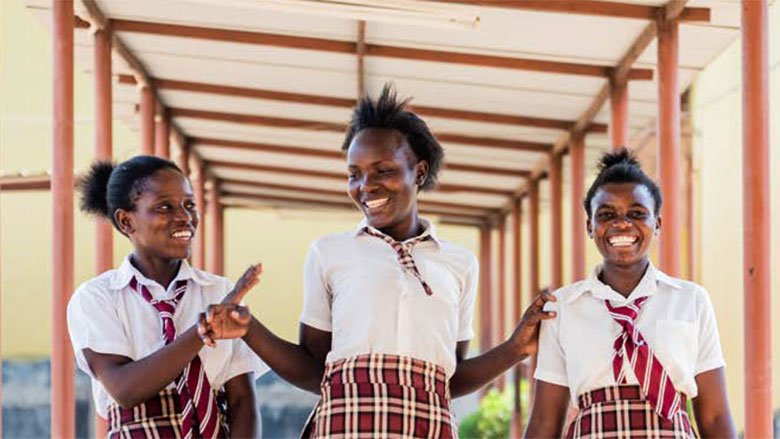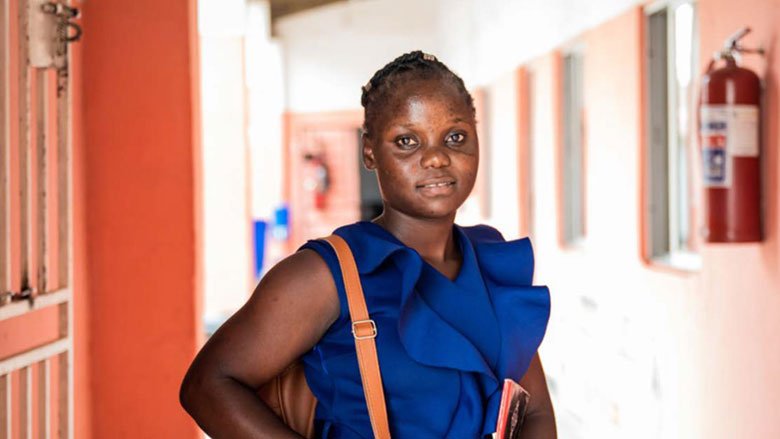LUSAKA, May 4, 2022—Before Subeta Nkumba, was enrolled in the social cash transfer (SCT) plan in Siavonga District, Southern province, the 53-year-old widow could not afford to feed her family three meals per day.
But since she started receiving benefits in 2017, a lot has changed in her life.
“When I started receiving this money, I didn’t want to use it for unproductive things, but decided to invest in my small business,’’ Subeta said. Using money from the SCT, Subeta has managed to build a small trading shop, and has plans to build a small house and renting it out to earn more income.
Looking at how much the SCT, a program available through the Girls Education and Women's Empowerment and Livelihoods (GEWEL) Project, has helped in growing her business, Subeta is encouraging other SCT beneficiaries to invest the money they receive into businesses and other income generating activities.
All over the world, including in Zambia, social protection programs are a proven way to get people out of poverty, improve their education and health, and support them in producing more, to help themselves and the economy.
A new World Bank-produced photobook, A Hand-up, not a Hand-out, showcases beneficiaries through their voices and stories which bring the GEWEL project to life. The book highlights beneficiaries under the Supporting Women’s Livelihoods program (SWL), Keeping Girls in School (KGS) program and SCT.
Girls such as Rose Tembo, a beneficiary under KGS, a beneficiary of the SWL program. For Rose, the support from GEWEL helped her to complete high school and is now a student at North End University.
“If it was not for KGS, it would have been very difficult for me to complete secondary education because my family could not afford,” Rose said.
Social protection programs such as GEWEL are becoming increasingly important as Zambians endure multiple shocks such as back-to-back droughts and the negative effects of the COVID-19 (coronavirus) pandemic. It is estimated that 58% of Zambians were poor by 2020. This means that 2.3 million more Zambian people fell into poverty on top of the 8.4 million that were already poor in 2015, increasing the number of people needing social protection.
“The World Bank estimates that, globally, 36% of very poor people have escaped extreme poverty because of such social safety nets,” said Sahr Kpundeh, World Bank Country Manager for Zambia. “Evaluations internationally and in Zambia also show that poor families invest more in health and education because of this support, therefore if SCT is used wisely, it has great potential to help people escape from extreme poverty.”
Stella Zulu, a 58-year-old woman from Chisoni Village, Nyimba District, has become an entrepreneur with support from SWL.
“I never thought I could run my own business,” Stella said. “But because of the three weeks training in life and business skills, and belonging to Titukuke Savings Group, I’ve been able to buy cement to build a house/grocery shop.”
To date, 95,000 women have been reached under the SWL and over 58,000 girls reached under KGS.
“GEWEL is a cash plus social protection program that supports the poorest families in Zambia with cash transfers, empowers girls from those families to complete their secondary education, and supports women in starting their own small businesses. So far, the project has shown positive contribution to reducing poverty in Zambia,” said Emma Hobson, Senior Social Protection Specialist and Task Team Leader.
The Government of Zambia recognizes the importance of social protection in its vision and strategies for reducing poverty and improving development. These commitments are reinforced in the National Social Protection Policy and its framework, which provide a strong rationale for a scaled-up and well-financed social protection sector, including government’s partnership with cooperating partners to implement the Girls Education and Women's Empowerment and Livelihoods (GEWEL) project.

